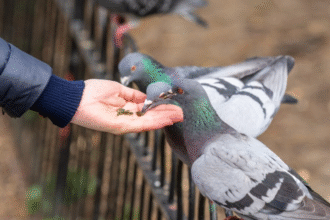Service dogs are great companions that go beyond being simple pets. The right service dog can help you with your mental health disabilities by bringing you medication, calming you down, and much more.
While service dogs are available for depression, you may be curious about the types of tasks they can do for you to help. The good news is that we’re here to help. Read on to learn more about service dog tasks from depression and how they can help you turn that frown upside down.
What Is a Service Dog?
Service dogs are animals that help people with mental or physical disabilities. They’re trained to perform specific tasks that assist people with their disabilities to reduce symptoms. It’s also important to note that service dogs are protected under the Americans with Disabilities Act (ADA), so they can live in non-pet-friendly housing, join you in public settings, and even travel on planes thanks to the Air Carrier Access Act (ACAA).
When it comes to service dogs for depression, you’re looking at a psychiatric service dog, which is a unique type of service dog that’s trained to assist with symptoms of depression. This is different from an emotional support animal (ESA), which is a pet that provides comfort but doesn’t require any training. Both options are viable for depression depending on what a licensed mental health professional states about your condition.
4 Service Dog Tasks for Depression
There are a handful of service dog tasks for depression, and while they can be trained to perform most tasks, some tasks are more common than others for depression. Learn about the four most common and beneficial service dog tasks for depression below.
1. Emotional Support
The best thing that service dogs for depression can do is offer emotional support. Not only do they provide the level of companionship that pets offer, but they go beyond this with training for deep pressure therapy (DPT). This type of therapy allows them to apply pressure at the right times to calm people down, especially during a panic attack.
Service dogs for depression will also detect changes in mood and prevent people from slipping further into depression or potentially engaging in harmful behaviors.
2. Medication Reminders
Service dogs for depression can remind people when it’s time to take medication. For someone who relies on this medication for stability, missing a dose at the right time each day may cause instability and worsen symptoms of depression.
This is where service dogs for depression swoop in to save the day by remembering that their human companions have to take specific medications. What’s more, service dogs that remind people to take medication don’t just nudge them in the right direction, but they’ll often deliver the medication to them.
3. Promoting Physical Activity
Depression causes a lot of bad side effects including a lack of energy and general unhappiness. While these symptoms can be reduced with the right medications, studies have shown that exercise and being outside in the sun can also reduce the symptoms of depression, and many service dogs trained for depression will get their companions outside for walks or a good play session.
Another benefit of this is that many service dogs for depression require a daily routine and that can create a sense of stability and happiness for people who struggle with depression. Sometimes, having a little bit of purpose is all you need.
4. Interrupting Self-Harm
Depression can be a dark condition and people may want to take their own lives at some point. Having a service dog trainer for depression is helpful because they will interrupt someone’s attempt at self-harm.
Service dogs can also provide distractions when they sense that someone is entering a depressive episode that tends to result in self-harm. Furthermore, if something does happen service dogs can notify authorities and get help.
Experience the Benefits of Service Dog Tasks for Depression
Service dog tasks for depression have been shown to reduce symptoms, improve well-being, and even keep people alive. While medication is effective for treating depression and the symptoms that come with it, sometimes there’s no replacement for the love that a canine companion can offer.
Whether you’re on the fence about going through the process of adopting a service dog, or unsure about the conditions that qualify for service dog work (which you can read more about here), it’s worth considering. Speak with a licensed mental health professional for more information or schedule a telehealth call with an online platform like United States Service Animals (USSA) to learn more.














